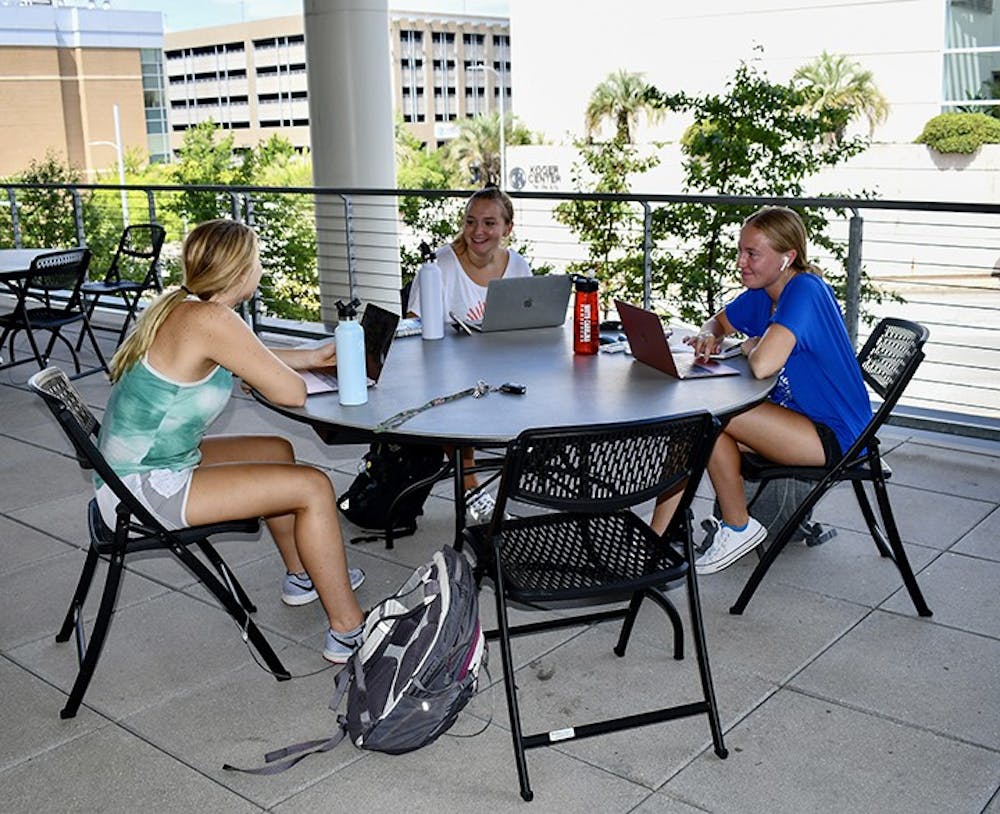The majority of students surveyed by The Daily Gamecock said the move to mostly online classes in the 2020-21 academic year was the right decision to make, though the transition had its issues.
“I would have been much more uncomfortable if I was forced into a schedule that I needed to be in-person without having that choice,” Manuela Cano, a second-year integrated information technology student, said. “So, I do think, you know, it was the right choice.”
Of 41 students interviewed, only one did not have any online classes in the fall 2020 semester. All 41 students surveyed have at least one online class in spring 2021.
Several students said they wished the university would provide more monetary support in lieu of online classes. Mikayla Carty, a second-year biology student, said she would have liked to see the university provide tuition reduction or a refund for the things students are missing out on.
“Last spring, we got refund checks. And that was pretty nice because it was like, we got paid back for at least some of the stuff that we were missing out on,” Carty said. “But now I feel like this year, there was almost like, no change.”
Fifteen of the students reported enjoying online classes. Many cited both drawbacks and benefits to the experience.
First-year chemical engineering student Leslie Butler said it was more difficult to focus on the material in online classes.
“I have my phone right there, I have other distractions around me, but if I was in a lecture hall, I would be forced to pay attention to the professor,” Butler said.
Not all students said their learning styles were compatible with online instruction, such as third-year integrated information technology student Robbie Mroz, who said he is a hands-on learner.
Losing the social component of classes was another concern. Fourth-year theater student Kinzie Correll said she never meets classmates, unless it's in passing in a breakout room.
Casper Skinner, a third-year media arts and geography student, was concerned about the lack of interaction they have had with professors and other students.
“I'm going to be applying to grad school next semester, which is like, I'll be like, ‘Hey, I was in your class two semesters in a row, but you don't know me, like, can you write me a recommendation?’ and they're like, ‘I guess you turned your projects in on time? I don't really know who you are.’ And it's like, it's a bit frustrating,” Skinner said.
Fourth-year civil engineering student Sophie Curry said one benefit of online class was the material was more accessible.
“In the past, you know, if you couldn't make it to class one day, it made things very difficult if there was a test coming up. It really set you behind. But now you can go back and you can look at the lectures,” Curry said.
Some students also said they liked the less stringent scheduling.
“I would say it has been easier to hold a job with my online classes, but I'm definitely less engaged, so I don't know if I technically enjoy them. I think they're — they're easier to work around,” Deanna Smith, third-year psychology and public relations student, said.
First-year biochemistry student Miranda Fritz said her entire college experience being mostly online was disappointing.
“Without going to class in person I feel like there's no way to meet new people and create a new life. It's just kind of isolated,” Fritz said.
While the majority of students felt their professors have done a good job adjusting to online learning, some said professors need to be more understanding about technical difficulties.
“Some [professors] should be more sympathetic about [how] you're using online assignments, because I had an exam that I failed because it crashed, and I didn't have time to finish it,” Genny Hicks, a first-year fashion merchandising student, said. “And they just weren't really understanding that it was more technical fault than my fault.”
Many students interviewed said they weren’t sure they were getting their money’s worth with online education. Fourth-year environmental studies and global studies student Ashley Clubb said as consumers of the university, students are not getting all that USC is selling.
“They're selling the USC brand, and the things that we do, and it's not just coming to school anymore,” Clubb said. “That's why we're not getting our money's worth. It's because we're paying for things that keep USC going as a business and not just as a university.”

